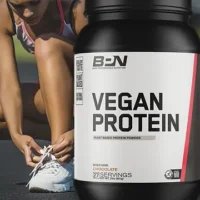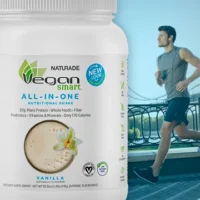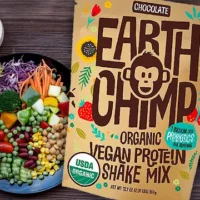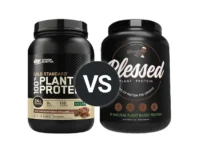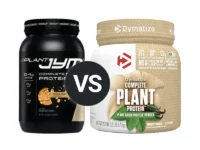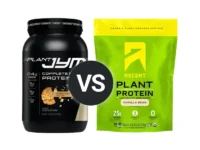Knowledge BaseYou're Questions Answered
Is protein powder vegan?
Protein powder is a popular supplement used to support muscle growth, recovery, and overall nutrition. Whether a protein powder is vegan depends on its source and ingredients. Understanding the distinctions between vegan and non-vegan protein powders can help you choose the right option for your dietary preferences and needs.
Types of Protein Powders
1. Non-Vegan Protein Powders
Many common types of protein powders are not vegan because they are derived from animal products. These include:
- Whey Protein: Made from the liquid part of milk that separates during cheese production. Whey protein contains lactose and is not suitable for vegans1.
- Casein Protein: Another milk-derived protein that is slow-digesting and commonly used for sustained amino acid release. It is also not vegan2.
- Egg Protein: Made from egg whites, providing high-quality protein but unsuitable for vegans3.
2. Vegan Protein Powders
Vegan protein powders are made from plant-based sources and do not contain any animal products. Popular vegan protein powders include:
- Pea Protein: Derived from yellow split peas, pea protein is a complete protein that contains all essential amino acids.
- Rice Protein: Made from brown rice and often combined with other plant proteins to ensure a complete amino acid profile.
- Hemp Protein: Contains all essential amino acids and provides additional nutrients such as omega-3 and omega-6 fatty acids4.
- Soy Protein: A complete plant protein that offers a similar amino acid profile to animal-based proteins5.
How to Identify Vegan Protein Powder
To determine if a protein powder is vegan, check the product label for ingredients and certification. Look for labels that specify “vegan,” “100% plant-based,” or “dairy-free.” Ensure that there are no hidden animal-derived ingredients such as casein, whey, or egg whites.
Considerations When Choosing Vegan Protein Powder
- Protein Quality: While some plant-based proteins may not be complete, combining different sources (e.g., rice and pea protein) can provide all essential amino acids.
- Digestibility: Plant-based protein powders are generally easier to digest and hypoallergenic compared to dairy-based powders.
- Nutritional Additives: Some vegan protein powders are fortified with vitamins and minerals, making them comparable to animal-based protein powders in terms of nutritional benefits.
- Smithers, G. W. (2008). Whey and whey proteins—from ‘gutter-to-gold’. International Dairy Journal, 18(7), 695-704.
- Hoffman, J. R., & Falvo, M. J. (2004). Protein–which is best? Journal of Sports Science & Medicine, 3(3), 118-130.
- Sicherer, S. H., & Sampson, H. A. (2014). Food allergy: Epidemiology, pathogenesis, diagnosis, and treatment. Journal of Allergy and Clinical Immunology, 133(2), 291-307.
- Callaway, J. C. (2004). Hempseed as a nutritional resource: An overview. Euphytica, 140(1-2), 65-72.
- Messina, M., & Messina, V. (2010). The role of soy in vegetarian diets. Nutrients, 2(8), 855-888.
Related Questions
Related Reviews
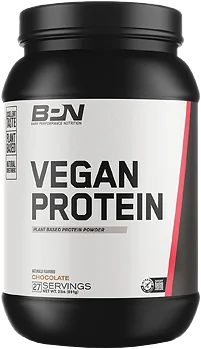
Your Answer
We are a participant in the Amazon Services LLC Associates Program, an affiliate advertising program designed to provide a means for us to earn fees by linking to Amazon.com and affiliated sites.

